Search Results
Showing results 1 to 20 of 25

Dye Like A Natural
Source Institutions
In this activity, learners stain fabrics--on purpose!
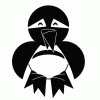
Fraction Penguin
Source Institutions
In this craft activity, learners will recognize, name, and compare the fractions 1/2, 1/4, and 1/8 by constructing a penguin out of portions of paper circles.
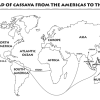
Green Travelers
Source Institutions
In this activity (on pages 23-29), partners use the Plant Traveler Cards, along with a world map and map worksheets, to follow plants such as cassava, chocolate and coffee that grew first in one part
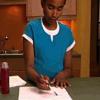
Invisible Ink
Source Institutions
In this simple chemistry activity (page 1 of PDF under SciGirls Activity: Colorblind Dogs) about acids and bases, learners will mix a baking soda and water solution and use it to paint a message on a
Healthy Buffet
Source Institutions
In this nutrition activity (page 2 of the PDF), learners will be split up into food groups (Fruit, Vegetable, Meat & Beans, Grain, and Dairy) and draw a picture of their favorite food from their g

Soggy Science, Shaken Beans
Source Institutions
Learners explore soybeans, soak them in water to remove their coat, and then split them open to look inside. They also make a musical shaker out of paper cups, a cardboard tube, and soybeans.
Leaves: Extracting Pigments
Source Institutions
In this fun, hands-on autumn activity, learners experiment to discover whether the colored substances in leaves can be separated from the leaves.
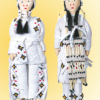
Plenty on the Plains
Source Institutions
In this activity, learners compare the ways of life of Plains Native Americans who hunted and moved frequently to follow the buffalo herds, and Native Americans who farmed and lived in more permanent
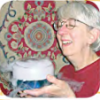
Homework, Hogwarts Style
Source Institutions
In this activity on page 8 of the PDF (Behind the Scenes with Chemistry), learners make three of Harry Potter's essential school supplies: quills, ink, and color-changing paper.

Patterns and Relationships: Here, There & Everywhere
Source Institutions
In this math activity, learners use a variety of sensory modalities to gain experiences with identifying, describing and creating repeating patterns.
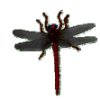
Going Buggy: Three Body Parts
Source Institutions
In this fun snack and craft activity, young learners make "Ants on a Log" and their own model of an insect. The purpose is to learn the three main insect body parts—head, thorax and abdomen.
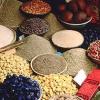
Spice World
Source Institutions
In this activity, learners create a map showing the origins of spices and herbs from a favorite recipe(s). Learners first research the origins of the ingredients and then locate them on a world map.
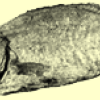
Make a "Mummy"
Source Institutions
The Ancient Egyptians used a naturally-occurring salt from the banks of the Nile River, called natron, to mummify their dead.
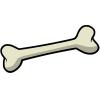
Calcium Collage
Source Institutions
In this activity (on pages 11-14 of PDF), learners cut out pictures from magazines of foods that help make bones strong and glue the pictures to a paper bone.

A Recipe for Air
Learners use M&Ms® (or any other multi-color, equally-sized small candy or pieces) to create a pie graph that expresses the composition of air.
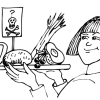
Everyday Poisons
Source Institutions
This reading and writing activity (on pages 2-9) teaches what plant parts should be avoided, how a person can get rid of toxins, symptoms of plant poisoning, and how plants create poisons to repel pre
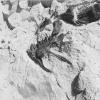
Fossil Dig Site
Source Institutions
In this activity (located on page 5 of PDF), learners work in groups to create dig sites for display.
Enhanced Water Taste Test
Learners conduct a "blind" taste-test of several types of enhanced or fitness water drinking water that has commercially added substances like vitamins, sugars, or herbs.
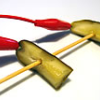
Pickle-oh!: Musical Pickle Instrument
Source Institutions
What's a Pickle-Oh? Two pieces of pickle on a stick are connected to a Pico Cricket (micro controller). When you slide the pickles apart the note changes.
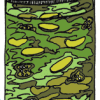
Kimchee Fermentation Chamber
Source Institutions
Learners make kimchee or sauerkraut, which is really just fermented cabbage, in a 2-liter plastic bottle.
